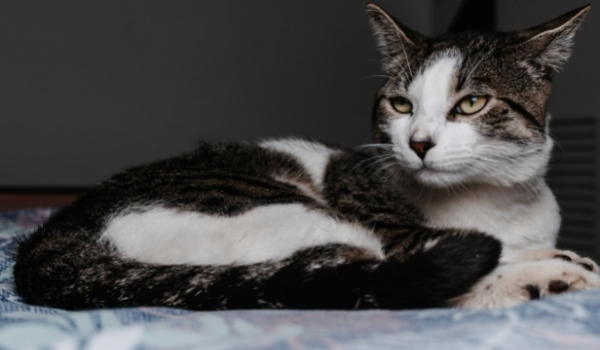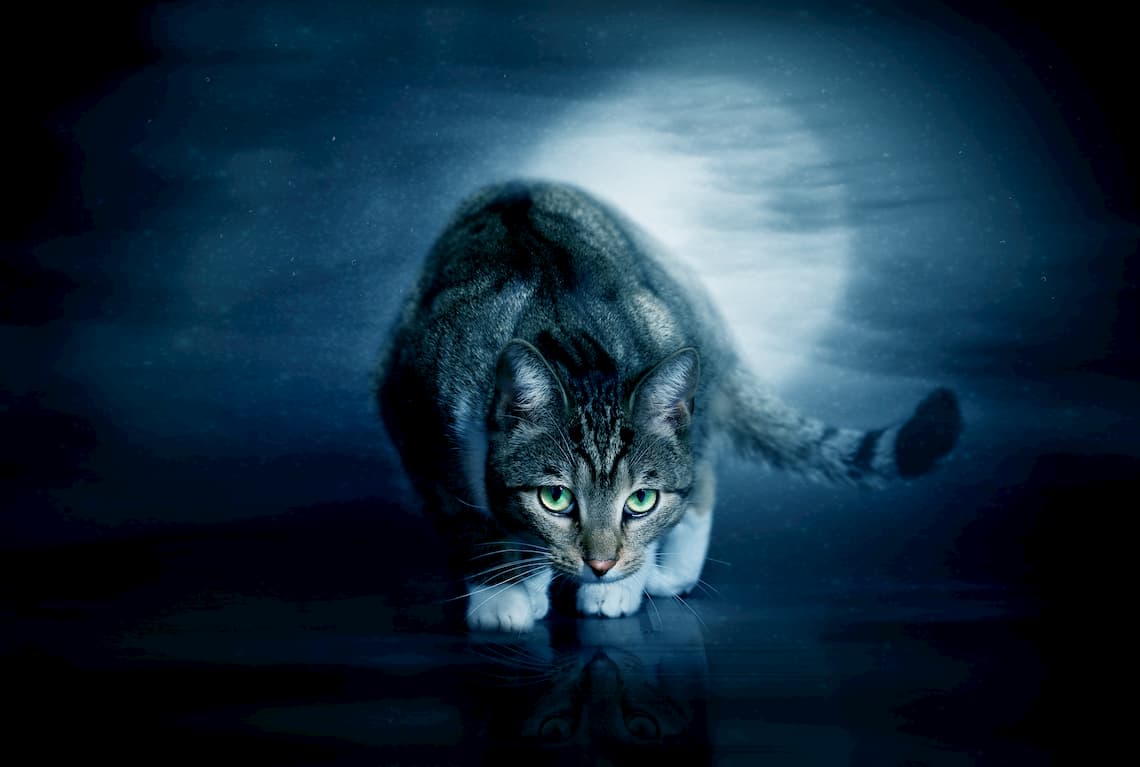

The last thing you want is a stressful relationship between you and your cat! Do not strike or punish your cat for this behavior which isn’t caused by human emotion.Consider changing one of your cats feeding times to right before bedtime or feed your cat with an automatic food dispenser to keep him awake some of the day so he sleeps at night.Many toys are available such as a “Roll-a-Treat” or a “Kong” that will attract your cat with food. Keeping your cat occupied while you’re away during the day will provide mental and physical stimulation for your pet.Many cat toys exist as do ideas on keeping your cat occupied so they sleep through the night. Tire your cat out with early evening playtime so he sleeps through the night.Reinforcing your cats nightlife behavior is sending a message that it is okay. Never reward disturbing behavior by feeding, playing or even chasing them out of your room.Here are a few tips to aid you in altering your cat’s behavior: By slightly shifting your cats schedule and by managing their environment you can accomplish the change from nocturnal to diurnal (but take note that some cats simply cannot or will not change). If your cat displays nocturnal behavior, you can take solace in the fact that in some of those cats this behavior can be modified so your cat becomes more diurnal.

Unlike their big cousins, feral cats rely on some human contact in order to get food and rarely live specifically on hunting prey. These were previously household cats that returned to their wild state when they were abandoned or slipped away from their owners. Feral cats appear to be nocturnal as well. Their eyes are designed to see in low light. In the wild, the big cats are nocturnal hunters. Take note that crepuscular cats sometimes don’t follow crepuscular rules as a moonlit night or cloudy dreary days can enchant your cat into committing some daytime mischief! Diurnal animals peak during the day and nocturnal at night. Early morning and early evening is their time to thrive! These types of animals are known as being crepuscular, which differ from those being diurnal and nocturnal. Their agenda includes lounging around midday, avoiding the heat, and keeping their cool. These cats love combining the night with the day and they enjoy a lot of human interaction. Some cats sleep in the warmth of the day, stirring only when their family returns from work or school. Animals active during daylight hours are called diurnal. He’d retire around 8PM and sleep through the night until around 5AM when my family awoke for daily activities.

But being nocturnal isn’t necessarily the lifestyle adopted by every cat who may choose playtime around dusk or dawn or during the day rather than the night!Ĭats active during the day are probably no problem because they’re sleeping quietly with you at night instead of causing some trouble or making noise. This is a common complaint that’s not at all unusual because cats are mostly nocturnal animals. This is because carbs are easier to digest and can make cats feel sleepy.Many cat owners have complained that their cat is keeping them awake at night.

On the other hand, cats that eat a high-carb diet may be more likely to be sleepy during the day. This is because protein takes longer to digest, and can give cats a “second wind”. Cats that eat a high-protein diet may be more likely to be awake at night. Dietīelieve it or not, diet can also play a role in a cat’s sleep schedule. This is because they won’t have as many opportunities to sleep during the day. everyone works outside the home), they may be more likely to be active during the day. On the other hand, if a cat lives in a household that is very quiet during the day (e.g. This is because it’s easier for them to find a quiet spot to sleep when the house is quiet. children coming and going, people working from home, etc.), they may be more likely to be awake at night. If a cat lives in a household where there is a lot of activity during the day (e.g. EnvironmentĪnother factor that can influence a cat’s sleep schedule is their environment. By the time they reach adulthood, they will typically sleep for around 12-16 hours a day. In fact, kittens can sleep up to 20 hours a day! As they get older, they will gradually start to sleep less. Just like human babies, kittens need a lot of sleep. One factor that can affect a cat’s sleep schedule is age. See also Why Is My Hamster Walking Slowly? Age


 0 kommentar(er)
0 kommentar(er)
